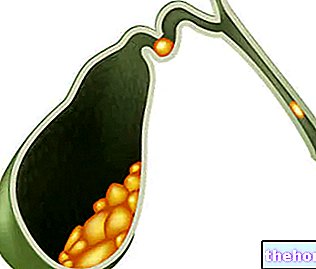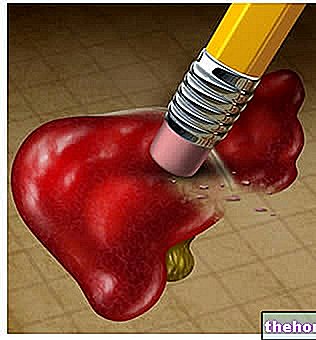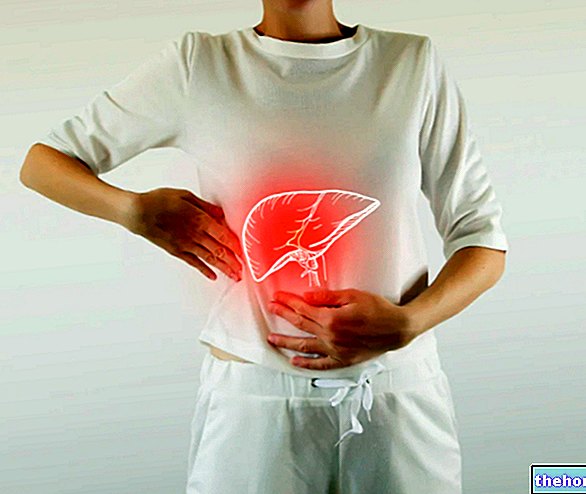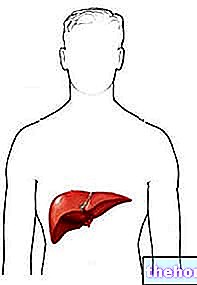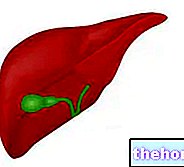Generality
Hepatic coma is a severe state of unconsciousness that characterizes the final stage of hepatic encephalopathy, a neurological disease resulting from the presence of a state of liver failure.

Treatment of hepatic coma includes hospitalization in intensive care, continuous support to vital functions, metabolic support therapy and a series of measures aimed at preventing complications from prolonged immobility.
The prognosis is generally negative: in most cases, in fact, hepatic coma ends with the death of the patient.
What is hepatic coma?
Hepatic coma is the severe state of unconsciousness that people with more advanced hepatic encephalopathy experience.
Hepatic encephalopathy is the result of structural and functional alterations of the brain, due to the presence of a severe deficit of the liver, which is called hepatic insufficiency.
REVIEW OF HOW LIVER INSUFFICIENCY CAUSES LIVER ENCEPHALOPATHY
The human liver plays very important functions for life, including:
- The production of essential proteins and hormones;
- The production of coagulation factors;
- The regulation of cholesterol levels in the blood;
- The elimination from the blood of the so-called waste products, which can be toxins, infectious agents or catabolites;
- The infusion of new energy into the organism when there is a general energy deficit.
Those suffering from hepatic insufficiency have a liver that is irremediably damaged and unable to perform most of the functions listed above.

Causes
Hepatic coma can result from a state of hepatic insufficiency, linked to the presence of an acute "hepatic encephalopathy, or it can result from a state of hepatic insufficiency, associated with the presence of a chronic" hepatic encephalopathy.
Acute hepatic encephalopathy is a neurological condition resulting from very serious liver diseases, with an acute character and with a rapid and sudden onset. Examples of such pathologies are: acute fulminant viral hepatitis, toxic hepatitis and Reye's syndrome.
Chronic hepatic encephalopathy, on the other hand, is a neurological condition resulting from a progressive degenerative process of the liver, better known as liver cirrhosis.
WHAT IS THE MOST SERIOUS CAUSE?
Acute-type hepatic encephalopathy is a more serious and less treatable condition than chronic-type hepatic encephalopathy.
All this clearly affects the prognosis, which tends to be much more unfavorable in the first circumstance than in the second.
Risk factors for hepatic encephalopathy:
- Nitrogen overload and consequent increase of ammonia in the blood
- State of dehydration
- Presence of electrolyte or metabolic imbalances, such as hyponatremia, hypokalaemia or alkalosis
- Improper use of benzodiazepines, narcotics and / or antipsychotics
- Alcohol intoxication
- Hypoxia
- Infections, such as pneumonia, urinary tract infections or bacterial peritonitis
- Medical interventions by shunt transjugular intrahepatic portosystemic (N.B: these procedures cause hepatic encephalopathy even in the absence of liver disease)
Symptoms, signs and complications
An individual in hepatic coma behaves exactly like any other individual in a coma due to other causes (eg severe brain trauma). Therefore:
- It cannot be awakened;
- It does not respond to any painful stimuli;
- It does not respond to changes in light;
- Doesn't respond to sounds;
- It lacks the sleep-wake cycle;
- He is unable to make any voluntary gesture.
COMPLICATIONS
Hepatic coma represents the most severe stage of hepatic encephalopathy.
Its occurrence is, for many patients, the prelude to death, which occurs as a result of a cerebral edema.

